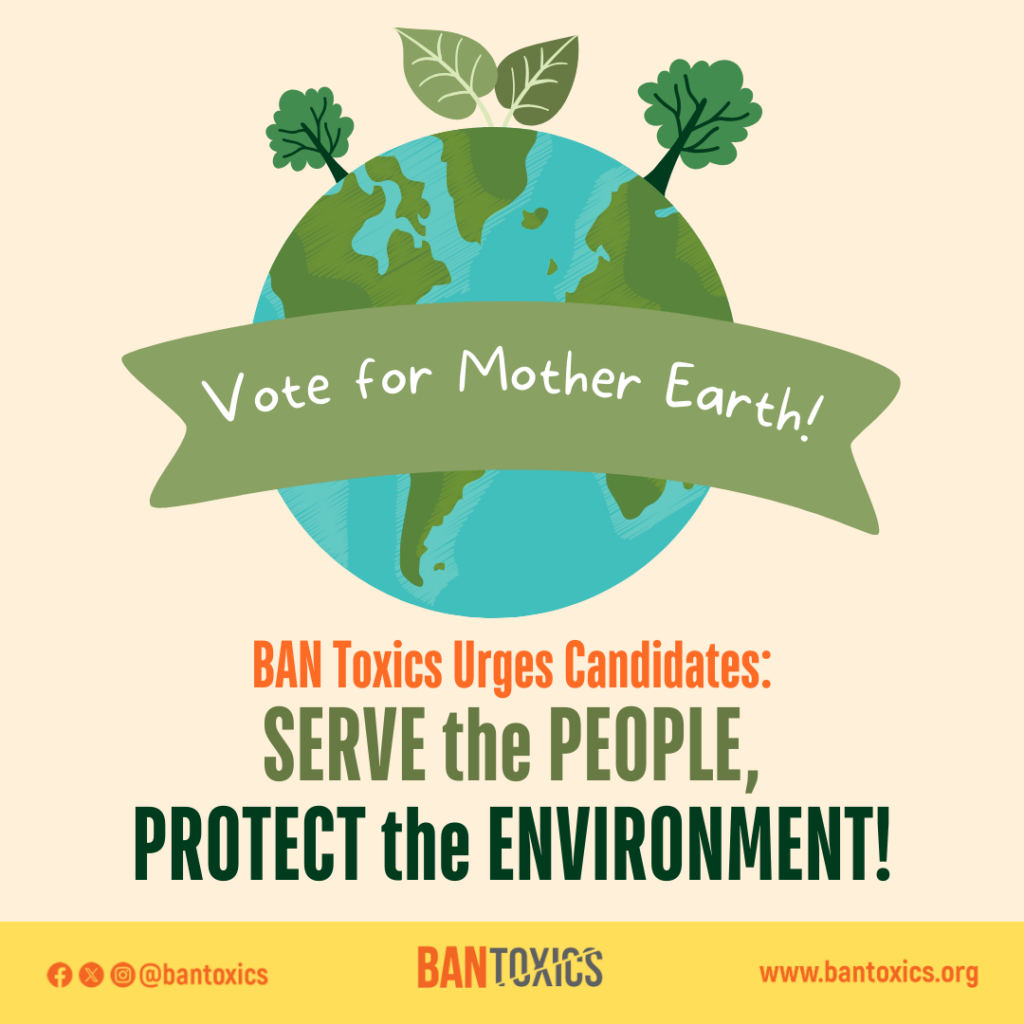PRESS RELEASE | 11 February 2025

“Election season is here again, and soon we’ll be hearing politicians declare their commitment to the people and the nation. But a leader who is truly dedicated to public service must also stand for environmental protection.”
This was the statement of environmental watchdog BAN Toxics as the campaign period for the 2025 Philippine midterm elections commenced today.
According to the group, every candidate should prioritize a strong environmental agenda in their electoral platform. This includes tackling the waste crisis and reducing plastic pollution, protecting the public from hazardous chemicals in consumer products and industrial activities, and safeguarding natural resources through forest conservation and responsible mining, among other key measures.
“Protecting the environment is synonymous with protecting the public from climate change-induced disasters and exposure to toxic chemicals. Candidates must recognize that environmental issues are not separate from public welfare—they directly impact health, livelihoods, and future generations,” said BAN Toxics Campaign and Advocacy Officer Thony Dizon.
Dizon added that one immediate step candidates can take to demonstrate their commitment to the environment is by being responsible in the use of campaign materials. He echoed the recent call of the Commission on Elections to opt for biodegradable materials and minimize waste during the election season.
According to COMELEC Resolution No. 11111, parties and candidates are encouraged to use recyclable and environmentally friendly materials in their campaign and election propaganda. They are also urged to avoid materials containing hazardous chemicals and substances, as stated in Section 7 of COMELEC Resolution No. 11086.
The resolution emphasized that “globally, the production and use of plastic have significant effects on the environment, including the destruction of marine ecosystems, harm to wildlife, and risks to human health.” It further stated, “From campaign activities to voting, the environmental impact of electoral processes extends far beyond the ballot box, encompassing resource depletion, pollution, and waste generation.”
Dizon also reminded candidates to refrain from posting campaign materials on trees, in line with Republic Act 3571. The law prohibits the cutting, destroying, or injuring of planted or growing trees, flowering plants, shrubs, or other vegetation of scenic value along public roads, plazas, parks, school premises, and other public spaces.
BAN Toxics is set to release its own set of environmental agendas throughout the election period to guide candidates in integrating environmental protection into their platforms and to raise public awareness on pressing ecological issues that need urgent action.
“Our call is simple, serve the people, protect the environment,” the group concluded. #
